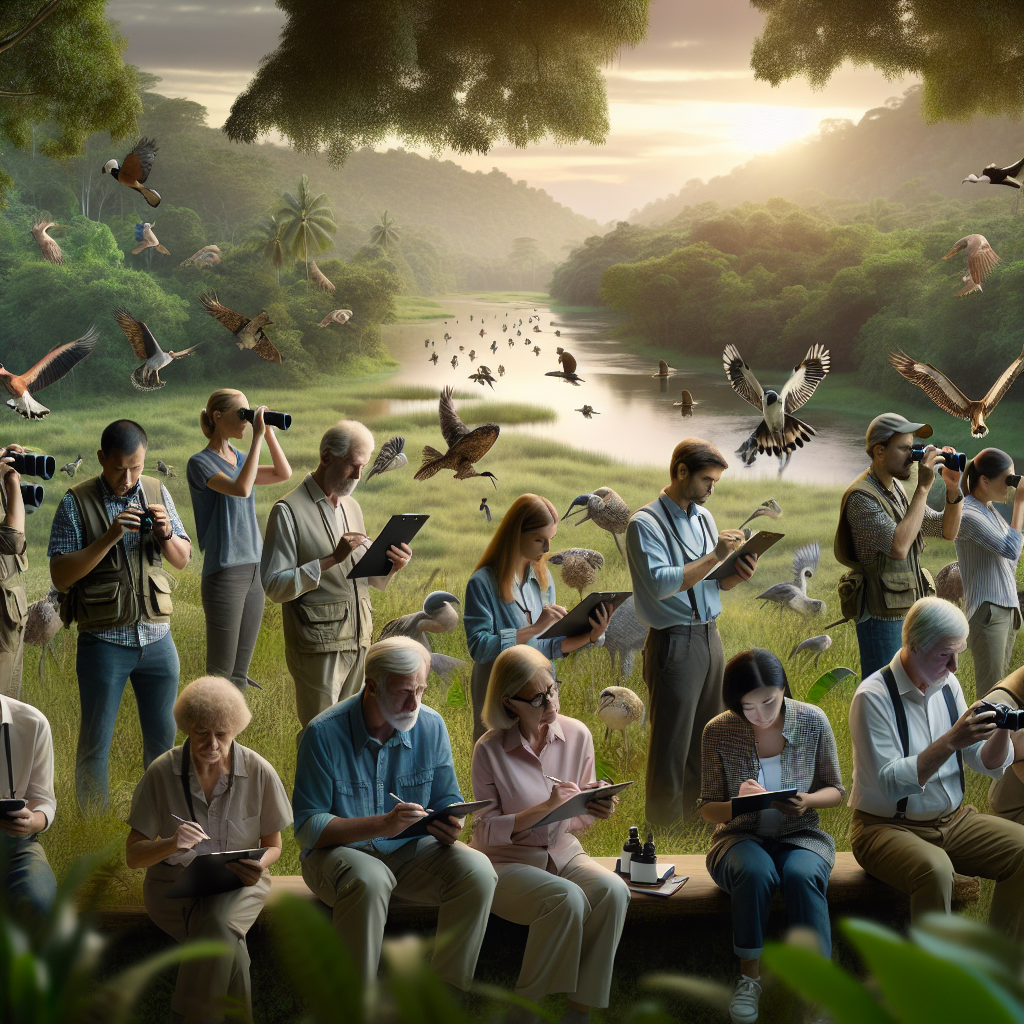
How Citizen Science is Shaping International Conservation
Citizen science is emerging as a transformative force in global conservation efforts. By actively involving non-scientists in research, citizen science offers a grassroots approach to tackling ecological challenges. This participatory form of science is not only democratizing data collection but also influencing policy at multiple levels.
Understanding Citizen Science
Citizen science is all about engaging non-professional scientists in the full spectrum of the research process. This includes designing research questions, choosing data collection methods, analyzing data, and sharing findings. This process not only enriches the data pool but also serves as a powerful tool for fostering public awareness and advocacy.
Importantly, the term “citizen” in citizen science is not limited to national citizenship. It is science by and for the people, transcending geographical and cultural boundaries.
Local Impact: From Community Concerns to Policy Enforcement
At the local level, citizen science demonstrates its potential to instigate policy changes. An exemplary case is the Clean Air Coalition in western New York, where residents documented air pollution and its health impacts. Their citizen-collected data compelled regulatory actions, leading to a 92% reduction in carcinogenic benzene levels between 2008 and 2019.
Similarly, the Great UK WaterBlitz mobilized thousands of volunteers to assess water quality across the UK. While not yet influencing official policy, their findings highlighted pollution hotspots, prompting recognition from environmental agencies.
National Influence: Advocacy and Policy Change
On a national scale, citizen science initiatives can significantly impact conservation policies. The UK’s Big Butterfly Count is a shining example. In 2024, 85,000 volunteers reported a dramatic decline in butterfly populations, sparking calls for pesticide bans. Consequently, the UK government rejected an emergency pesticide application in 2025, citing evidence contributed by citizen scientists.
Global Contributions: Data Driving International Agreements
Citizen science also plays a crucial role in shaping international conservation policies. The United Nations incorporates citizen science data into frameworks such as the Sustainable Development Goals (SDGs) and the Kunming-Montreal Global Biodiversity Framework, bolstering efforts to track environmental progress.
Projects like FreshWater Watch, conducted by Earthwatch Institute Europe, engage communities in Sierra Leone and Zambia to monitor water quality, contributing to indicators for clean water SDGs.
Challenges and Future Prospects
Despite its successes, citizen science faces challenges, including volunteer retention and funding limitations. Moreover, policymakers often exhibit reluctance to incorporate citizen-collected data due to concerns about its quality and reliability.
However, as policymakers increasingly recognize citizen science as a credible method, its influence on conservation is set to grow. Its democratizing potential offers a promising avenue for more inclusive and impactful conservation efforts globally.
The Potential for Greater Integration
Current estimates suggest that while citizen science data supports only a small fraction of SDG indicators, it could potentially contribute to up to 33% of them. As more projects emerge and data reliability improves, we can expect a greater integration of citizen science into formal policy monitoring frameworks.
Knowing this, everyone has the opportunity to be part of a global movement that empowers citizens in the fight for a sustainable future.
Source: https://theconversation.com/how-citizen-science-is-shaping-international-conservation-247033


Your article helped me a lot, is there any more related content? Thanks!
Can you be more specific about the content of your article? After reading it, I still have some doubts. Hope you can help me.